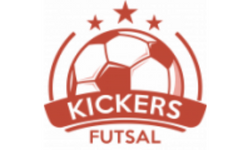The Highest-Paying Sports Professions in the USA
In a nation that passionately embraces sports, the athletic domain has transformed into a profitable industry, opening up numerous career avenues that go beyond being an athlete on the field.…
The Greatest Football Players From England: A Tale of Legends on the Field
Soccer, or football as it is known in most parts of the world, is more than just a sport in England. It is a way of life, a passion that…
How to write an essay about sports?
Sports have been an integral part of human life since the dawn of civilization. From ancient Greeks to modern-day athletes, people have used sports to stay fit, test their skills,…
Uncovering Excellence in Sports
Across the globe, billions of children engage in athletics, and countless are recognized for their outstanding talents! Despite the number of aspiring athletes, only a few will ultimately achieve elite…
How to enjoy your favorite sports and get profit?
Sports are something that is the most common for people all around the world. Some people do sports for the health benefits, others do sports as a professional career, some…
What Degree Do Most Athletes Get
Athletes are often some of the most dedicated and hard-working people around. They put in endless hours of practice to perfect their craft and become the best that they can…
What Jobs Are the Highest Paid in Sports Management
The highest paid jobs in sports management are typically high-level positions with a lot of responsibility. If you’re looking to make a big salary in this field, you’ll need to…
How can I make money from sports?
Former athletes are attracted by the opportunity to turn their favorite sport into a profession. Only a few are able to win an Olympic medal, a world championship or a…
Football Coaches That Lead From The Front Need to Do These 9 Things to Succeed
As a football coach, you need to pay attention to the details. To be successful and become a legend, you need to know what the players think about you. In…
10 Reasons Why Betting on Football Would Be a Great Idea
If you’re a sports fan, chances are that you also love betting on football. Gambling with your buddies at the bar after a big game is a tradition. And there’s…



















